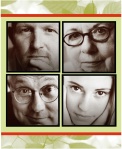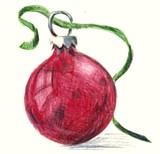 Hazelden, a national nonprofit organization that helps people reclaim their lives from the disease of addiction, recently launched a campaign called “Four Generations Overcoming Addiction.” The campaign was inspired by a national survey, conducted by Ipsos Public Affairs for Hazelden, that found parents’ honesty about their own drug and alcohol use when they were young actually made the teens more responsible about their drug and alcohol use.
Hazelden, a national nonprofit organization that helps people reclaim their lives from the disease of addiction, recently launched a campaign called “Four Generations Overcoming Addiction.” The campaign was inspired by a national survey, conducted by Ipsos Public Affairs for Hazelden, that found parents’ honesty about their own drug and alcohol use when they were young actually made the teens more responsible about their drug and alcohol use.
The survey polled 603 boys and girls aged 15-18 online and 620 parents of teenagers by telephone. Here are some of the key findings:
- Half of teens say it would make them less likely to use drugs if their parents told them about their own drug use when they were younger.
- Two-thirds of teens (67%) say their parents have already told them about their experiences with alcohol and other drugs when they were young – and these teens almost unanimously (95%) said that kind of honesty about drug use is a good thing!
- 74% of teens say they’d turn to their parents as their No. 1 source of advice about the use of alcohol or other drugs, even though 26% have seen their parents drunk or high on alcohol or drugs.
- Teens who are aware of their parents’ experiences with alcohol or other drugs as teenagers are nearly as likely as those who are not to consider their parents to be role models (90% vs. 93%).
Looking at some of the gender differences in the survey, it was interesting to find that:
- Teenage girls are more likely than teenage boys to wish their parents would share information about their past alcohol or drug use (74% vs. 61%).
- Parents of a teenage daughter are more likely to say that they had this discussion because their child asked them about their past alcohol or drug use (48% vs. 31%), while parents of a teenage son are more likely to say that they just brought it up on their own without prompting (82% vs. 71%).
- Dads are more likely than moms to have spoken with their teenage child on their own initiative without prompting (82% vs. 70%), while moms are more likely than dads to say they were motivated to have a conversation on this topic because a friend or family member had experienced problems with alcohol or drugs (51% vs. 34%).
Brenda Iliff, clinical director of Hazelden’s Women’s Recovery Center, wasn’t too surprised by the differences that came out. Says Iliff, “Women more wired for communication and connection.” That may explain why the girls bring the subject up more than boys and why mothers relate the conversation to other experiences rather than just bringing the topic up without prompting. Iliff also pointed out the shame that women have when it comes to addiction. The stigma attached to women abusing drugs and alcohol may prevent a mom from simply bringing the topic up, while dads might not think twice about it.
When asked what advice she would give to mothers who are also in recovery regarding talking to their kids about their past use, Iliff suggests starting the conversation when they’re young and keeping the conversation going. “Timing is important,” she stresses. “Share information when it is helpful, not just when you get the urge.” For many, these conversations are a part of their own recovery.
So, what’s the message here? Talk to your kids about your past experiences with drugs and/or alcohol. They look to you as a role model and will appreciate your honesty! And don’t be afraid to bring the subject up with your daughter. If she hasn’t brought it up yet, she might be thinking about it.
Hazelden’s “Four Generations Overcoming Addiction” campaign, which also coincides with Hazelden’s 60th anniversary, features a “Four Generations Overcoming Addiction” website offering free videos and conversation guides about drug use and abuse, addiction treatment and recovery; an online library of podcasts featuring personal accounts from four generations of Hazelden alumni, talking about their experiences with addiction and recovery; and Hazelden’s first-ever Recovery Resources Blog, an online home base for news about addiction and recovery.
 technorati tags: Four Generations Overcoming Addiction, Hazelden, Teens, Alcohol, Drugs, Parenting
technorati tags: Four Generations Overcoming Addiction, Hazelden, Teens, Alcohol, Drugs, Parenting
 The holiday season can be especially lonely and challenging for those dealing with the loss of a loved one. To help, Crossroads for Women will be offering Grief and Loss During the Holiday Season in the Portland, Maine area from December 7, 2010 – January 11, 2011.
The holiday season can be especially lonely and challenging for those dealing with the loss of a loved one. To help, Crossroads for Women will be offering Grief and Loss During the Holiday Season in the Portland, Maine area from December 7, 2010 – January 11, 2011.


 technorati tags:
technorati tags: 



